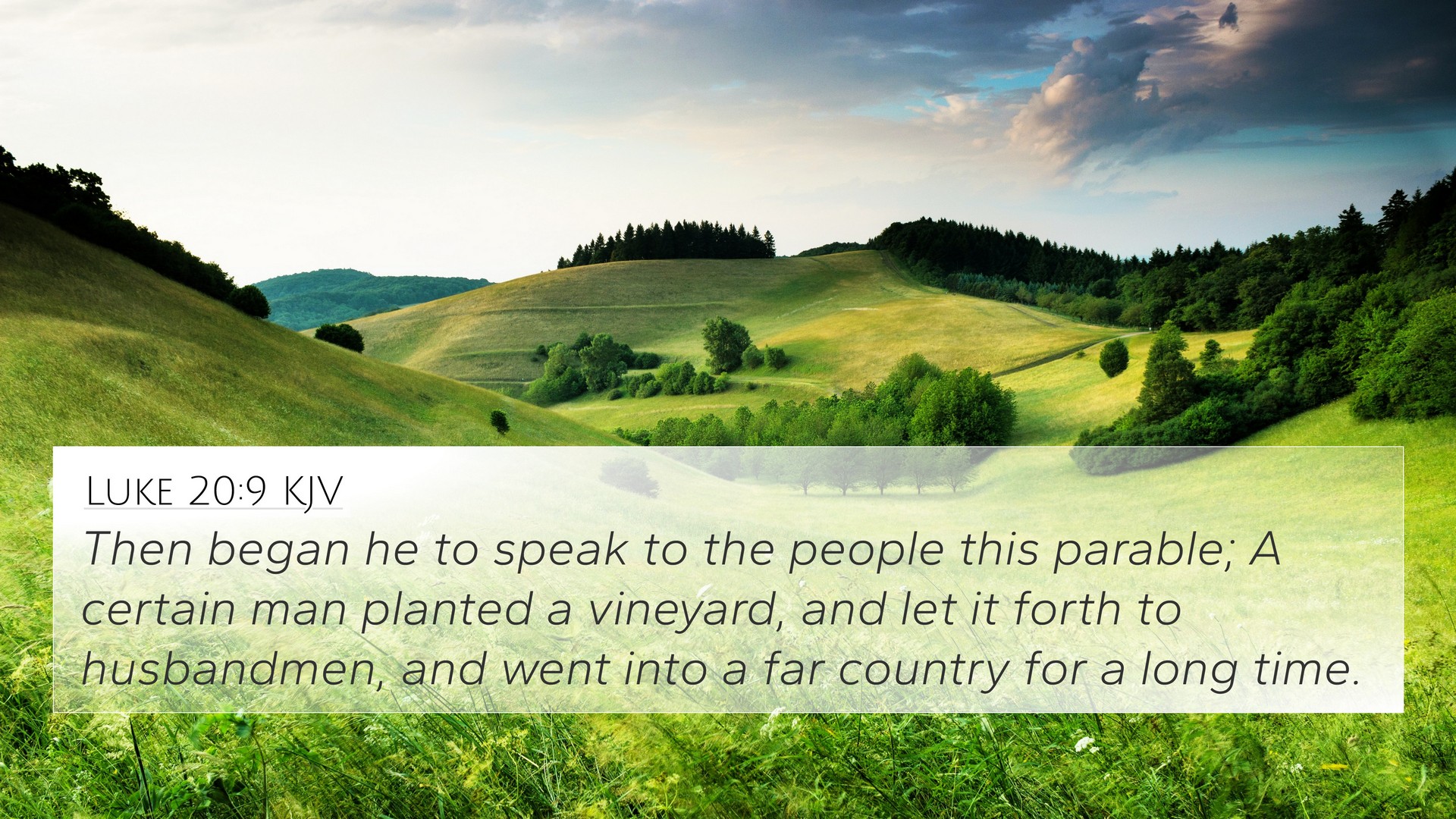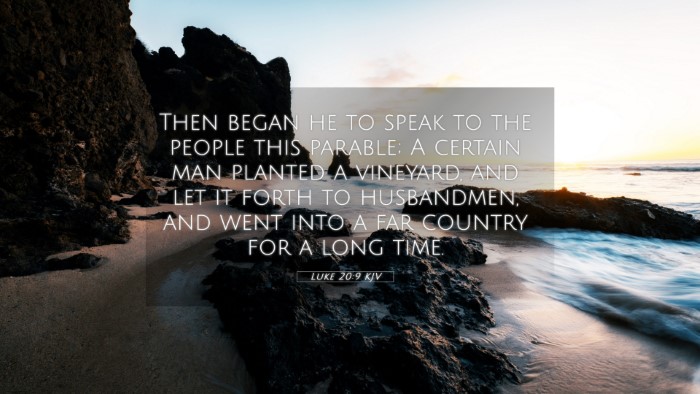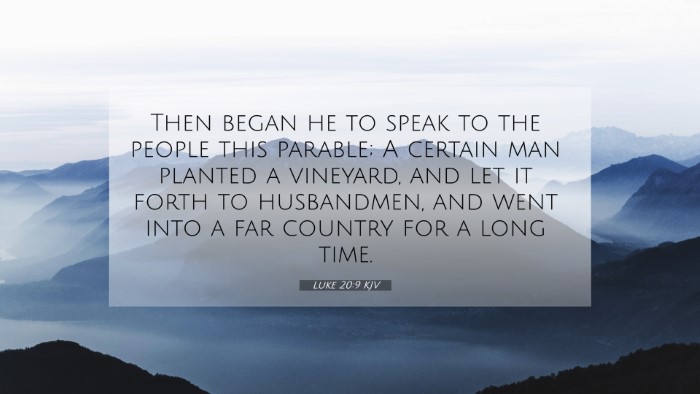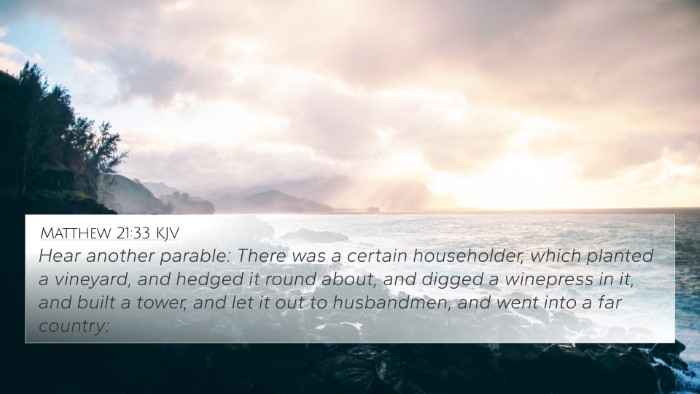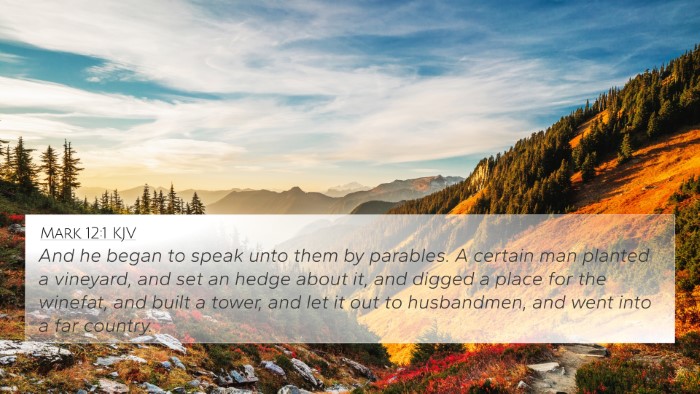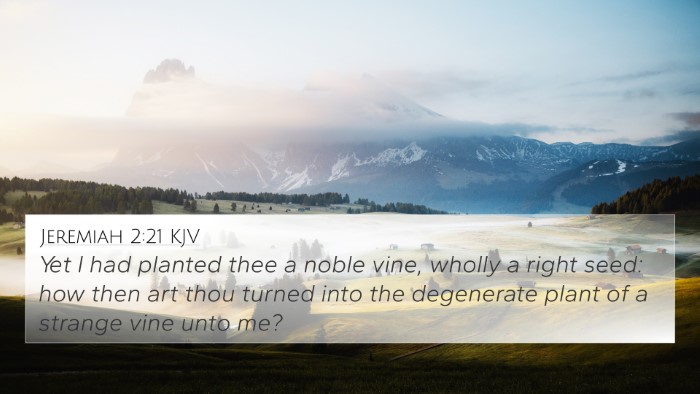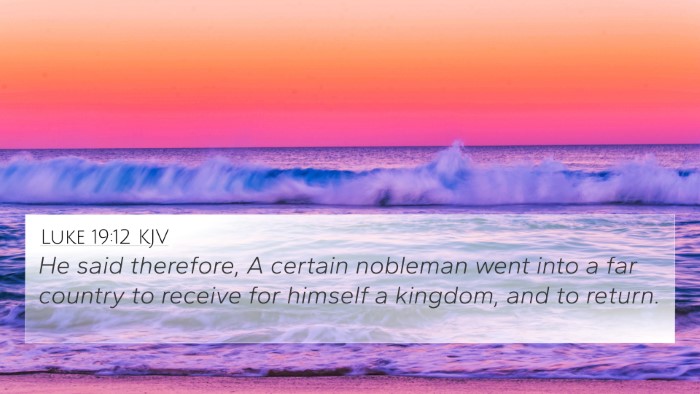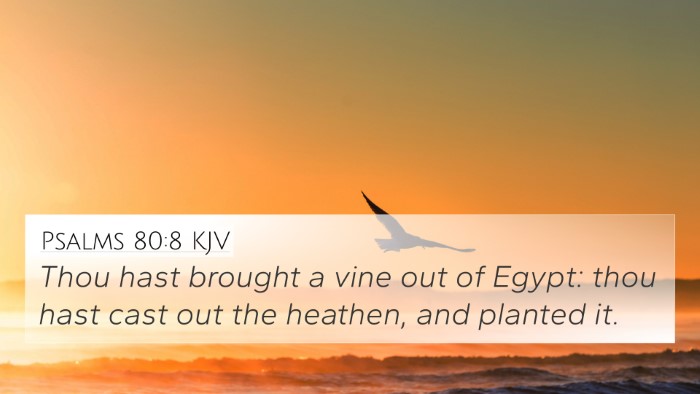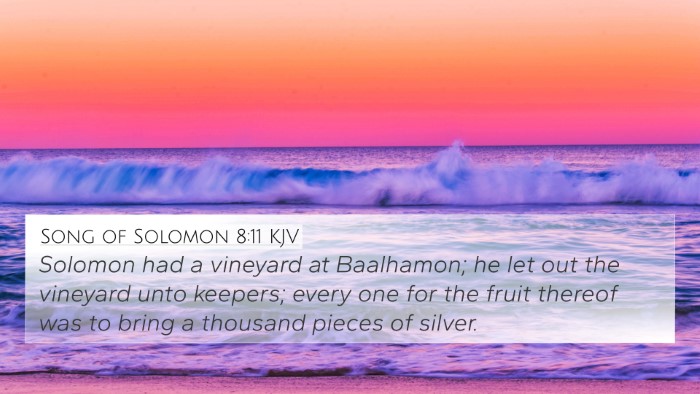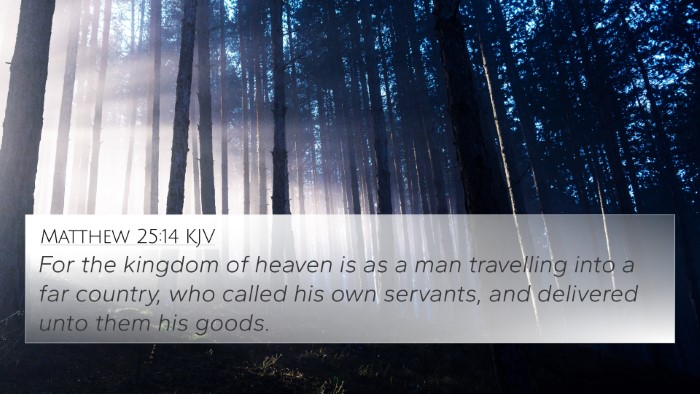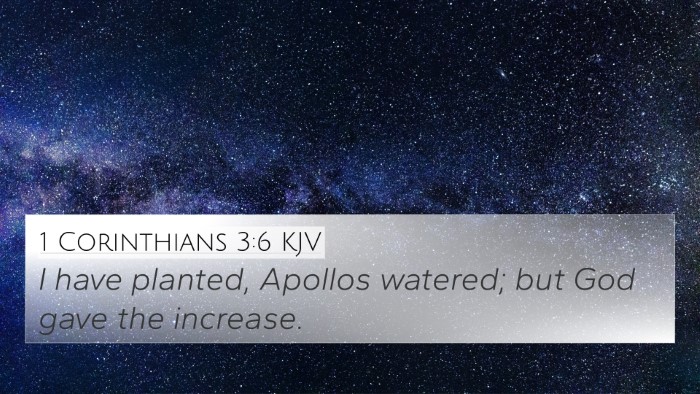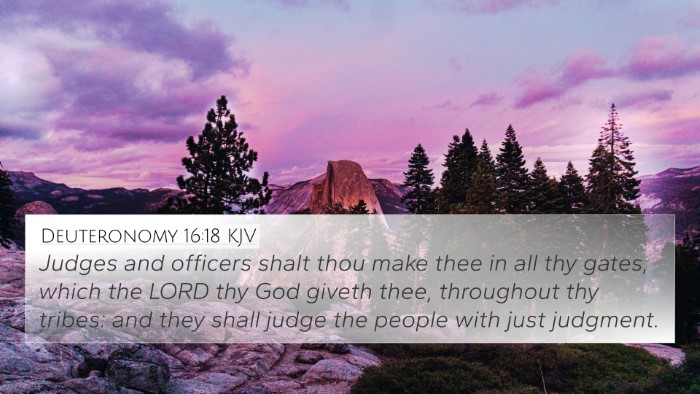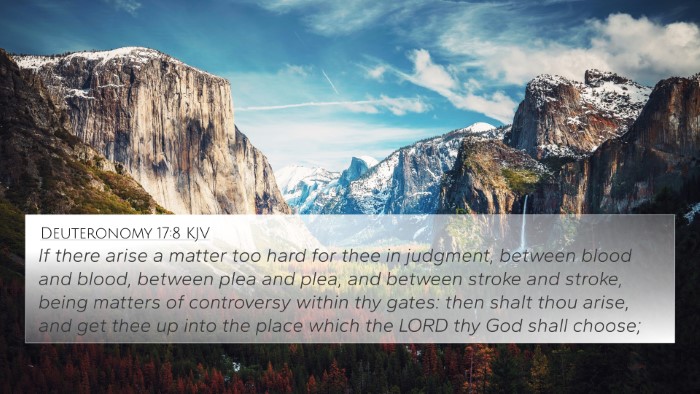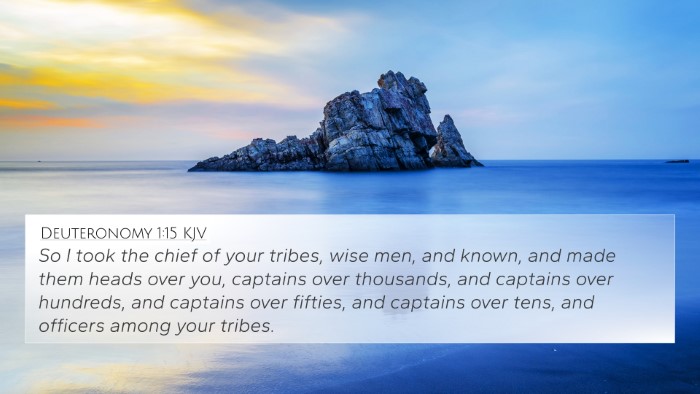Understanding Luke 20:9
Luke 20:9 (NKJV): "Then He began to tell the people this parable: 'A certain man planted a vineyard, leased it to vinedressers, and went into a far country for a long time.'
Context of the Verse
This verse opens a parable told by Jesus, which serves as a critical reflection on the relationship between God and Israel. Jesus frequently employed parables to illustrate deep spiritual truths, and this passage is no exception.
Summary of the Parable
The vineyard symbolizes Israel, the vinedressers represent the religious leaders of the time, and the man who plants the vineyard signifies God. The long journey into a "far country" highlights God's patience and the seeming delay of His judgment over His people.
Insights from Public Domain Commentaries
Matthew Henry's Commentary:
Henry notes that the vineyard represents not only Israel but also the Church and the blessings of God’s kingdom. The care taken in planting the vineyard suggests God’s provision and the expectations that He places upon His people to be fruitful. Henry emphasizes the patience of the owner, mirroring God's longsuffering toward humans despite their failings.
Albert Barnes' Notes:
Barnes points out that the "leased" aspect signifies that these vinedressers were entrusted with the care of God's people. This trust was not without accountability, as the owner expected to receive fruit from the vineyard. The parable emphasizes responsibility, and Barnes highlights that it serves as a warning to religious leaders of the dangers of failing to fulfill their divine commission.
Adam Clarke's Commentary:
Clarke expounds on the different elements in the parable. He focuses on the implications of the vinedressers’ actions and the consequences of their rebellion against the owner. Clarke’s discussion underlines the deep-rooted expectation God has for His people to return the fruits of their faithfulness, demonstrating God's longing for a relationship filled with obedience and yield.
Thematic Bible Verse Connections
Luke 20:9 invites readers to explore multiple themes such as stewardship, divine expectation, and accountability. The connections between this verse and others throughout Scripture help illuminate these themes more deeply.
Cross-References
- Isaiah 5:1-7: The Song of the Vineyard, illustrating God's care and expectations for Israel.
- Matthew 21:33-46: A similar parable focusing on tenant farmers, notably emphasizing judgment.
- Mark 12:1-12: The parallel account of the vineyard parable, highlighting God's messengers' treatment.
- John 15:1-8: Jesus as the true vine; God's desire for His followers to bear fruit.
- Hebrews 6:7-8: Commentary on the fruitful ground versus thorns and briars, resembling the vineyard theme.
- Romans 11:17-24: Paul's teaching on Israel and Gentiles as branches of the same olive tree, discussing divine inclusion and accountability.
- 1 Peter 2:9: A call for believers to be a chosen generation, emphasizing the need to live in accordance with God's will.
- Psalms 80:8-16: Imagery of Israel as a vine restored by God, correlating with the vineyard metaphor.
Scriptural Cross-Referencing and Analysis
Understanding Luke 20:9 through the lens of cross-referencing allows for deeper insights into Biblical teachings and the interconnectedness of Scripture. Tools for Bible cross-referencing, akin to a Bible concordance or reference guide, can aid believers in exploring these relationships effectively.
Tools for Cross-Referencing
- Bible concordance
- Bible cross-reference guide
- Cross-reference Bible study
- Bible chain references
- Comprehensive Bible cross-reference materials
Conclusion
In summary, Luke 20:9 establishes a foundational understanding of God’s expectations of His people through the imagery of a vineyard. Combining insights from various commentaries highlights the multi-dimensional nature of this parable, providing future reflection on how believers can live in accordance with God’s desires. Engaging with the cross-references identified fosters a greater appreciation for the thematic connections throughout the Bible, enriching one’s study and interpretation of Scripture.
